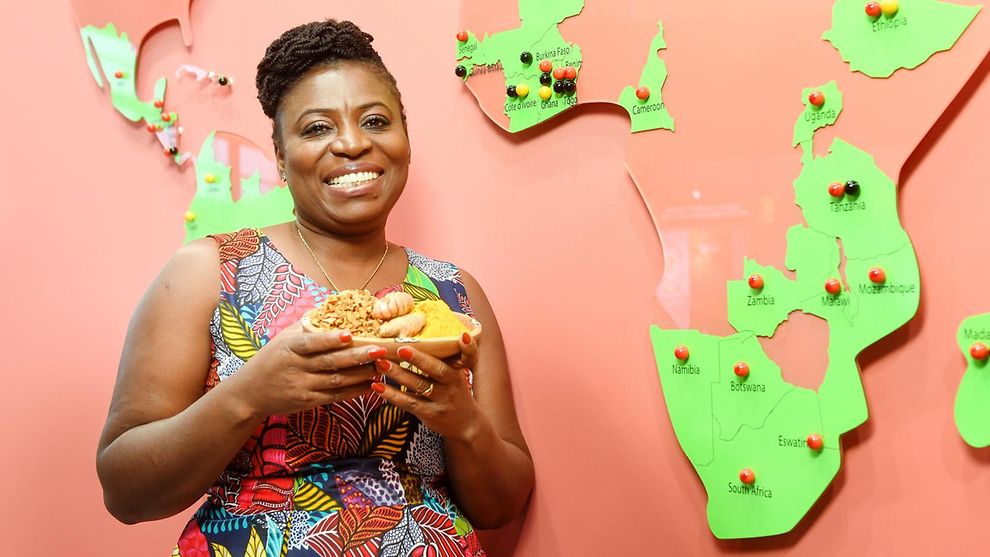There is no shortage of ideas in Ghana
Even as a child, Georgina Koomson dreamed of being successful with her own hands in her home country of Ghana. Today she runs a successful business and exports tea and spices all over the world. The German Development Ministry was able to help in the initial phase.
Successful founder: Georgina Koomson has 26 permanent employees.
Photo: Tobias Hase
Georgina Koomson captivates a conversation partner with the first sentence. Cheerfulness, energy and empathy resonate in her words. It is a pleasant mixture of the professionalism of a successful entrepreneur and the euphoria for the African continent.
During her “National Service” – a kind of community service that is obligatory for all students in Ghana – she got to know the conditions of agriculture in her home country firsthand. They were not satisfied with either the working conditions or the yields from the fields. She wanted to do better with her own company. However, due to a lack of capital, their project was threatened with an end before it could really get started. “We don’t lack ideas in Ghana, but rather concrete start-up support,” says Koomson, summarizing the situation.
Internship at a German spice manufacturer
She presented her idea for the Krooms company in numerous places. She finally received the necessary support through a program sponsored by the Federal Development Ministry. In 2001, the Ghanaian completed an internship at a spice manufacturer in Germany. “I was able to gain valuable practical experience here, which I still benefit from today,” she says, looking back on the weeks in Schwäbisch Gmünd.
Krooms still works closely with the German Development Ministry’s Market Oriented Agriculture Program ( MOAP ). ” MOAP supports local companies in optimizing manufacturing processes, certifying and further developing production,” says Georgina Koomson. 100,000 jobs were created in Ghana in this way. The yields of agricultural products could be more than doubled.

Excellent and sustainable agriculture
Whether pepper, mallow, ginger or caraway – today Krooms covers the entire process from cultivation and harvest to processing and marketing to shipping. 26 employees are permanently employed in the company, plus almost 30 seasonal workers. Cultivating and harvesting the 75 hectares of cultivated land in eastern Ghana provide another 800 women with a regular income.
In addition, only organic farming is practiced on the farms. For this successful approach to sustainability, the company has already been awarded the title of “Best Regional Farm” by the Ghanaian Farmers’ Association.
Cosmetic products are particularly in demand
After the harvest, further processing and shipping take place in the capital region of Accra. Here, Georgina Koomson’s demands are just as high as when it comes to cultivation: “In addition to a high-quality and organically certified range, it’s also about avoiding production waste,” she emphasizes resolutely. The range on offer is correspondingly diverse: in addition to various types of tea and spreads, she reports on the internationally popular cosmetic products based on hibiscus blossoms, shea nuts and lemongrass.
Krooms makes a natural insect repellent from lemongrass processing waste and is committed to sustainability. “In the near future I would also like to make briquettes from the shells of the shea nuts,” says Georgina Koomson, looking to the future. But the energy she radiates reveals that it’s not the only plan for her company.
One thought on “There is no shortage of ideas in Ghana”
Comments are closed.


A WordPress Commenter
Hi, this is a comment.
June 19, 2022To get started with moderating, editing, and deleting comments, please visit the Comments screen in the dashboard.
Commenter avatars come from Gravatar.